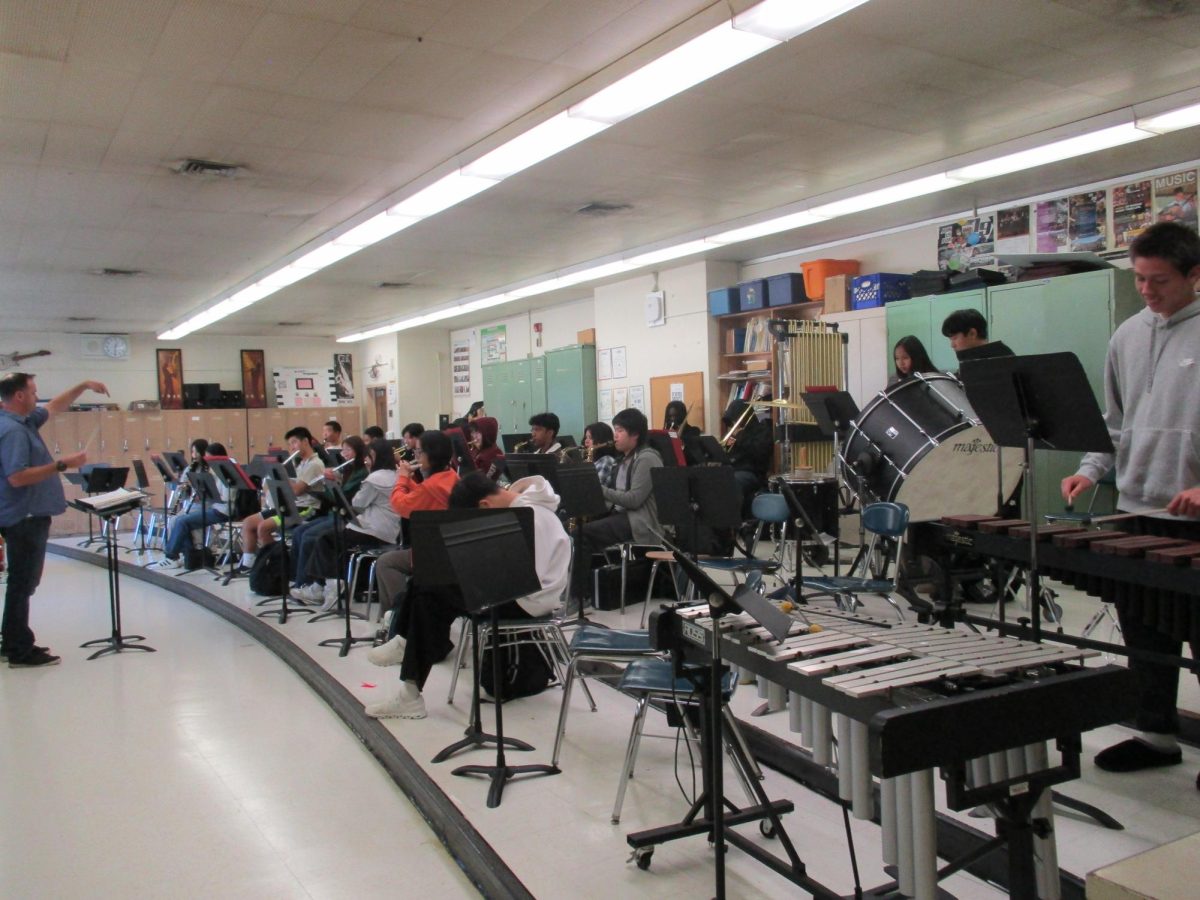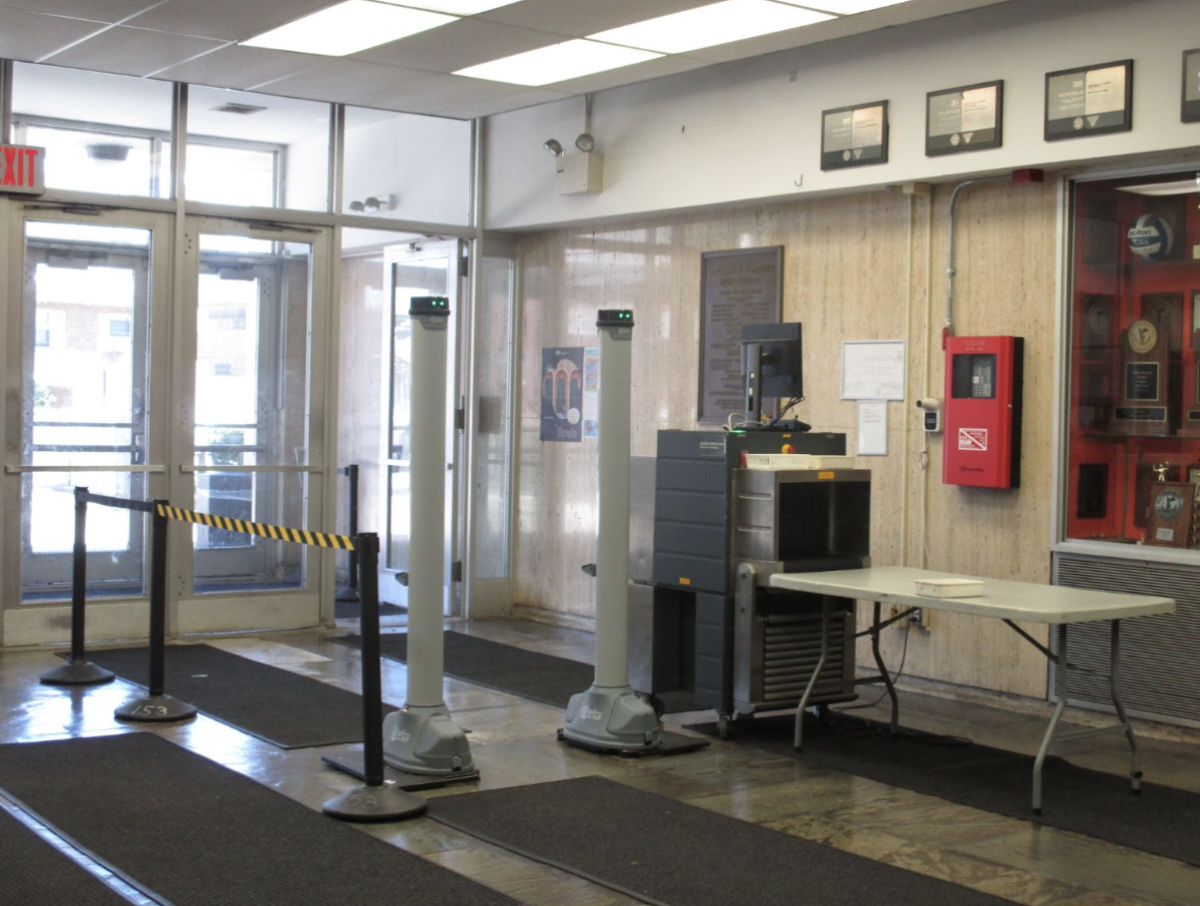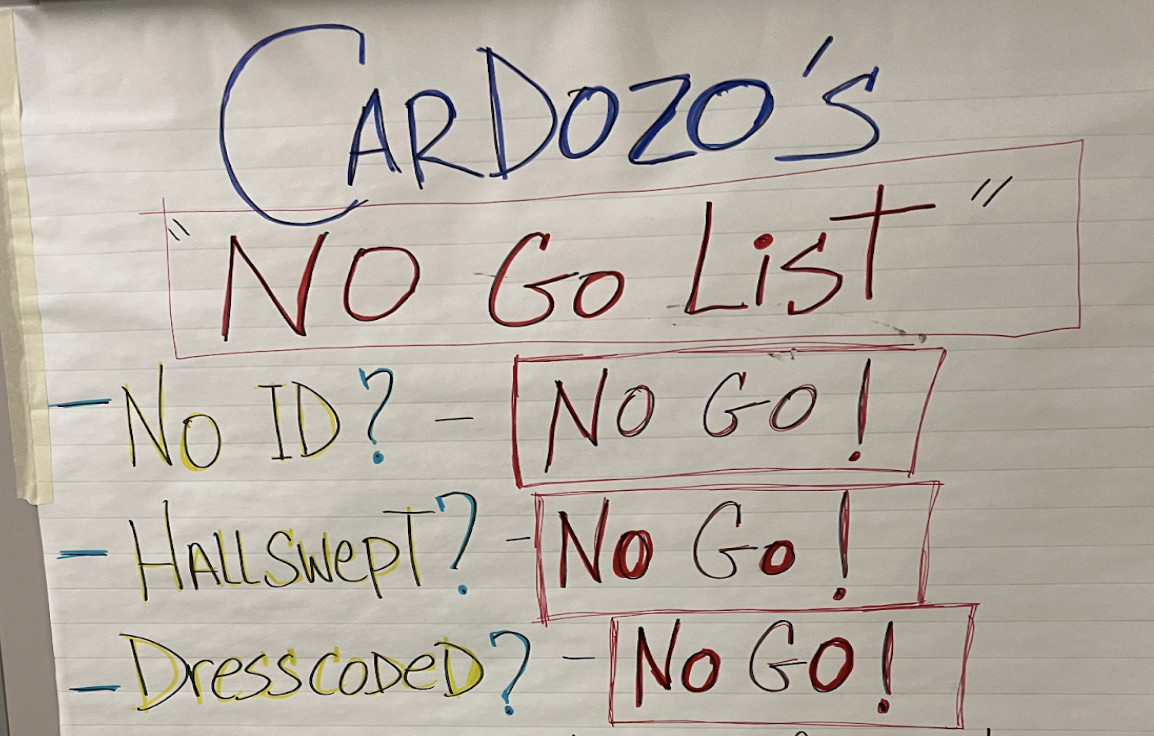Across the board at Cardozo, many people have mixed feelings about the baseline exams. Baseline exams are given three times per year to track student’s progress. The purpose of the baseline exams is to see where a student is at in their academic knowledge.
Only the main subjects are required to participate in this testing, such as the following departments: social studies, mathematics, English, and sciences. This helps the teachers and administration get a better understanding of where each student is individually to further know where to go teaching and structuring their classes. The end goal varies depending on if you do better than the last baseline exam, worse, or stay at the same level.
However, some students see it as a waste of time and overall not needed, especially because students must take multiple other exams in the midst of these, in addition to their classes. Counting the baseline towards your overall average has also risen as an issue.
Each teacher has a different take on whether they count the baseline as a regular grade toward students’ GPA. Some don’t count it at all and use it for data, while some use the exact grade as a test assignment. I have even encountered those who say if you try they will give a 100.

While students are not enthused about another test, the administration sees the need for these baselines. “I do see validity in it,” Assistant Principal Mr. Georgatos shared.
“I can speak about social studies. The test that we created is skills-based so it’s not too specific. By giving the first exam at the beginning of the year when kids maybe haven’t been taught that skill we see that this kid came in on this level and now we’ve been working with kids so we want to see the improvement next time we give it.”
However, Mr. Georgatos is also aware that the students are struggling with the excessive work. “I do see the validity but at the same time I see what the kids are going through and I think there’s over-testing going on,” he explained. “We are trying new things and we’re going to take what works and what does not work and adjust it.”
Math teacher Mr. Rosenthal also sees the test as a good thing. “I feel it’s an excellent way to gauge a student’s progress throughout the year,” he stated. Although, if he were a student, he does understand that it can be an extra test and extra stress.

“It’s been a long time since I’ve been in that position but would I have felt it was fair for me to take extra tests? No, probably not. I would think that it’s tests that don’t count and why do I have to take it, it doesn’t matter,” Mr. Rosenthal emphasized. However, he said that if students understood that it’s more for structuring classes and helping the, rather than just testing them, there may be less complaints from kids.
Some students, however, do not see that and instead see it as another test to take on top of regular testing, MAP Growth exam, Mock Regents, regular Regents exams, PSATs, and SATs.
“It’s inconvenient,” shared Cardozo junior Ethan Urena. “I don’t know if it’s important, but it is beneficial,” he went on to reflect. “It’s good to see where the students are at so you know how to pace the class, but at the same time it’s boring.”
When teachers share that the test doesn’t count towards a grade, it does cause kids lose motivation to do well. This can cause teachers to receive false data—meaning the baseline isn’t doing what it’s supposed to be doing.
“My teacher doesn’t grade it as a test but as a regular assignment,” Urena explained. “I put a little effort in but as it goes on I care less and less.”
As with any additional assignments, there are both pros and cons for staff and students. A common factor amongst both parties seems to be constant exams and over-testing. Students feel as though if they had better communication between teachers and their students, it would make this a whole lot easier, as well.













